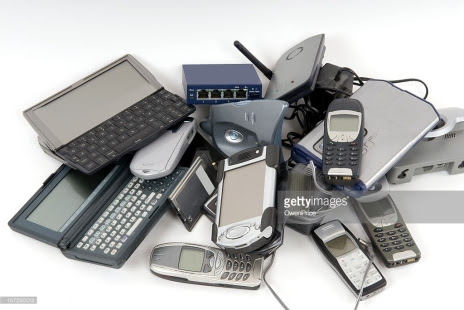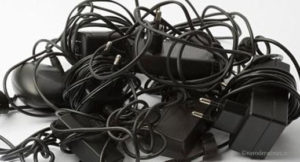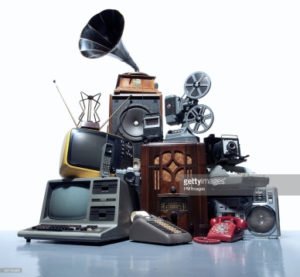This week, we’re tackling electronic clutter. With the exponential growth of technology, it seems that today’s innovation all too quickly becomes tomorrow’s garbage.
So, how can we handle our unused and/or outdated electronics responsibly while reducing clutter?
To begin, we have to define what “electronics” actually means. Electronics are any and all devices that use power (corded or wireless) to deliver a certain technology. Some familiar examples include:

Electronic waste, also known as e-waste, has unfortunately become a landfill staple. But it doesn’t have to be. Many local municipalities now offer e-waste recycling programs, and all it takes is a quick Google search to locate a site near you.
In fact, there are several good options when it comes to addressing our unused electronics, and they follow similar guidelines to other types of decluttering: Recycle, Repurpose, Reuse, or Repair.

Recycling outdated or non-functioning electronics is the easiest way to address the pile-up of devices in your home. A few tips:

Repurposing electronics can be a bit more challenging. In addition to conventional ideas, like donating old computers to schools or organizations in need, you can get creative. One idea is to check with local theater organizations to see if your items could be used as props. There are actually prop companies across the country that source dated electronics to use in TV, film, and other media venues. It’s worth looking into. Here, as with recycling, be sure to remove any personal data from relevant devices before donating them.
Just like detachable cables, you can reuse many items whole or in part. For example, you may be able to use your old smartphone as a storage device for music. You can even use an old iPhone that’s no longer connected to cellular data to take pictures on your next trip, or give it to a child to play games that don’t require a connection.

Finally, there’s increased interest in repairing electronics that no longer work, such as toasters, electric kettles, radios, and other small electronics that don’t necessarily use the latest technology. If you can fix it, why replace it?
Remember, not all electronics become obsolete just because we’ve replaced them with the latest model. By thinking outside the box, you can extend the life of your tech investment — and positively impact the environment.
All my best,
Claudia